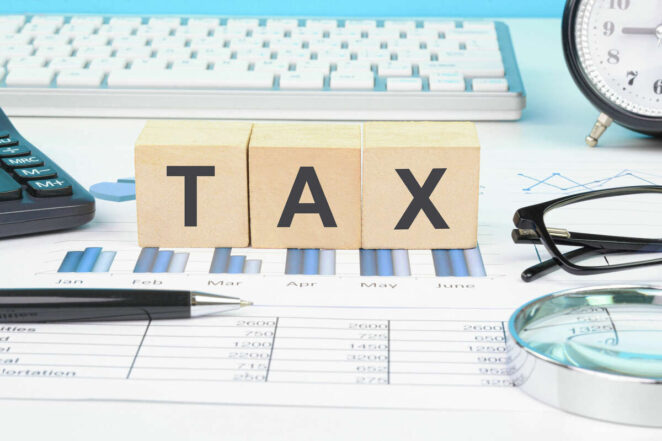Tax season is considered the most significant time of the year by many individuals and businesses, yet it is also the most terrifying one because of its complex process. However, with proper preparation, it can become much simpler. Did you know that the IRS processed over 143 million returns in the past fiscal year alone? That is a lot of paperwork to keep track of! But there is nothing to worry about, as we are here to assist.
In this article, we will provide five tips that will help ensure this year’s tax season goes as smoothly as possible. Whether you are a seasoned payer or new to the process, we will ensure you are well-prepared for everything. So let’s begin!
1. Stay organized
Being organized is essential when planning for tax preparation. It is difficult to keep track of important paperwork without a properly organized system. One way to keep your records organized is to save receipts in a binder or folder and categorize them according to the type of expense. This will make it easier to locate the documents when it’s time to file tax returns.
Another option is using software for tracking expenses, which will make the process easier. It not only reduces the amount of clutter and paper waste, but it also aids in keeping track of your expenses. Furthermore, using software to track expenses can give you a thorough overview of your expenses throughout the year, making it easier to determine possible deductions.
Let’s consider an example to illustrate the value of staying organized. The 2024 FICA Tax Limit determining which income figure is subject to Social Security taxes will increase to $160,200. Any earnings over this limit won’t be subject to Social Security taxes, but failing to track income accurately may cause you to overpay more taxes than necessary.
By keeping records of income and expenses, you can ensure you’re not overpaying taxes. Also, whether you decide to utilize the software or even a physical folder, organizing your files is crucial to having a stress-free and smooth tax season.
2. Stay up-to-date with tax law changes

Staying abreast of tax law updates is vital since they change annually and could impact everything from deduction eligibility to payments due. As tax returns and penalties can change quickly, staying up-to-date is paramount for accurate completion and avoidance.
One way to stay informed on necessary adjustments would be to follow news channels dedicated to tax issues, like CNBC or Forbes. For further guidance and advice regarding any tax changes or compliance with all relevant legislation and rules, speaking to a tax professional would be beneficial. They can offer guidance regarding these matters and ensure your filing returns align with all relevant legislation and rules.
Along with understanding tax law, it’s equally essential to maintain accurate records of your transactions throughout the financial year. Doing this will enable you to identify deductions you qualify for and simplify tax preparation. Your return can be prepared correctly and efficiently by seeking expert advice when necessary.
3. No procrastination
Procrastinating can create unnecessary stress and potentially cause mistakes when you file your taxes late. Allowing yourself plenty of time is crucial for successfully filing your tax return, collecting all necessary documents, and reviewing financial records. One way to combat procrastination is to set deadlines throughout the year.
Break up the process into smaller, more manageable tasks to help avoid being left with an overwhelming mountain of work at the last minute. Working with a tax professional early in the year is another option to help manage tax season’s stress-induced rush. You can avoid rush-season stress by scheduling an appointment at the start of the year. You will be less stressed and more certain that your taxes are filed correctly and efficiently by avoiding putting off tax preparation and taking a proactive approach to tax season.
4. Boost deductions and credits

Making the most of deductions and credits is key to reducing your tax bill and possibly boosting your refund. Deductions can reduce the amount of your tax-exempt earnings, whereas credits directly reduce the amount you pay in tax. It is vitally important that you keep an accurate record of expenses that might qualify to maximize tax credits and deductions.
For instance, when giving to charity, be sure to record the amount as well as collect receipts as proof. Contributing to your retirement account could also help reduce the tax burden while simultaneously building savings. If you own and operate your own business, deductions related to it could even apply, including costs related to home office use or vehicle expenses.
By consulting a tax expert, you’ll make the most of all deductions and credits while avoiding errors that could incur fines or audits. By optimizing all deductions and credits you claim, you could significantly decrease your tax burden while possibly increasing your refund, providing more funds for reaching financial goals.
5. Seek Assistance
Tax preparation can be a complex and time-consuming task, even if your intentions are good. If you feel uncertain or overwhelmed, seeking outside help might be best. Engaging an expert tax accountant is your best bet for filing taxes correctly and in compliance with relevant laws and guidelines. Tax professionals can give you peace of mind by handling communication with the IRS and representing you during audits.
Furthermore, tax preparation software may simplify tax filing by streamlining every step. Some software applications provide audit and error-checking services to ensure the accuracy of your tax return. When choosing to utilize software or professional help for tax preparation, it is vital to take advantage of any available resources to make the process as seamless as possible.

Conclusion
The tax Year 2024 is approaching, and with these guidelines, you can make it as clear and painless as possible. Stay organized and aware of tax laws to reduce last-minute panic and decrease your chances of making mistakes on your return. And ease anxiety by proactively seeking assistance and utilizing deductions and credits as appropriate to lower the tax burden and maximize your refund.




